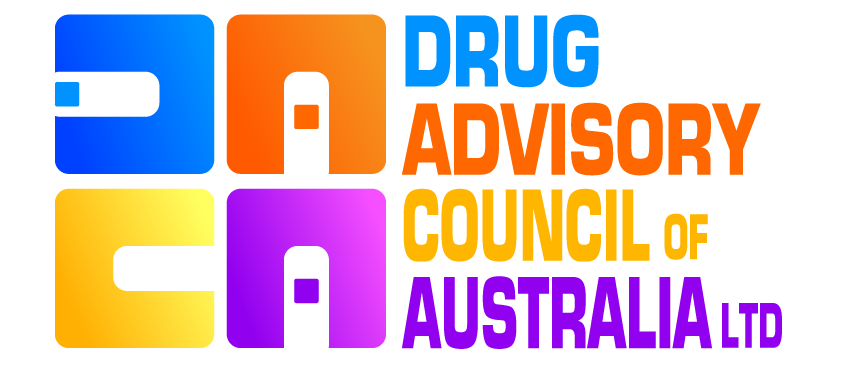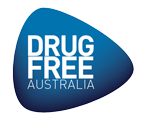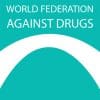Founders & Patrons
Founders
Dr Joe Santamaria - Founding Chair - Drug Advisory Council of Australia Inc
Australian medical researcher, ethical and social policy pioneer, Dr Joseph Santamaria OAM was born in the Aeolian Islands, just north of Sicily in 1923. He grew up with six siblings, within a migrant family in Brunswick, one of Melbourne’s inner suburbs. Dr Joe’s eldest brother was well known across Australia – the late B.A. or ‘Bob’ Santamaria.
Studying medicine during the Second World War, Dr Joe graduated in 1948 and specialised in Internal Medicine and Haematology. For a time he worked in General Practice.
His social and ethical insights were also deepening throughout the 1960s, as his work in Melbourne, included research into the effects of alcohol dependency and drug abuse among many patients, some homeless, who frequented the streets around St Vincent’s Hospital, in Fitzroy.
In 1970, he became the Director of the Centre of Community Medicine at St Vincent’s Hospital. This centre provided both outreach and research into the social, psychological and medical impacts of drug and alcohol use and abuse. As a consultant physician and the Foundation Chairman of the Addiction Research Institute, Dr Joe worked in the field of Alcohol and Drug Addiction for over 30 years.
With his vast experience in the negative effects of drugs and treatment for drug addiction, Dr Joe became the Founding Chair of the Drug Advisory Council of Australia (DACA). DACA was set up in 1980 to promote sound public policy and education on the dangers of illicit drugs to individuals, families and the wider community. With profound medical knowledge and professional expertise Dr Joe’s sincere aim was to reduce the harms.
Vale
Dr Joe passed away on 30 June 2019.
Mrs Elaine Walters OAM - Co-Founder Drug Advisory Council of Australia Inc
Mrs Walters has adopted a meticulous approach to her research of drug use and control around the world. The result is her latest book The Cruel Hoax, an expanded version of her previous books, Marijuana – An Australian Crisis and The Cannabis Connection.
Mrs Walters said she first became interested in drug issues while listening to a talk-back radio program 15 years ago. The parents of drug-addicted children were calling in.
I felt really moved. I thought its’ a pity they can’t get together. So I phoned the station and asked these people to contact me and invite them to share their experiences with each other.
They were the loveliest people. Often people have a strange perception about the parents of drug-addicted children. They feel that they must be dysfunctional families, or there’s something wrong with the parents to have let the children get into trouble like that. But they were all really lovely people and broken-hearted about their children’s problems.
Mrs Walters said of the six or so who turned up to her support group, two were mothers of marijuana-addicted sons. On comparing notes, the mothers found that both boys had experienced the same problems.
The parents believed, as I believed, and some people still believe, it was a soft drug and not to worry too much. But as the years went by they saw their boys’ deterioration, physically and mentally. They started to have mood swings and memory loss; they lost interest in hygiene.
Both boys had left school and got good jobs, and then they lost their jobs and their girlfriends and their whole social life disintegrated. Everything collapsed around them.
Mrs Walters said she was at first sceptical about the women’s claim that marijuana was the major cause of their sons’ problems. But as the support group Relatives Against the Intake of Narcotics, or RAIN grew, and she met more parents of marijuana-addicted children she became convinced that the drug was more dangerous than commonly believed.
After a few years of involvement with the group, she decided to investigate the issue further by talking to “the experts” – doctors, health administrators, social workers and drug counsellors.
After vast and meticulous research the dangers of marijuana use were exposed and expressed in Mrs Walters’ books.
Vale
Elaine Walters OAM passed away in May 2024
Patrons
Hon Bronwyn Bishop AO - Former Speaker of the House of Representatives
In 2007, as Chairman of the House of Representatives Standing Committee on Family and Human Services, we conducted a comprehensive enquiry into the impact of illicit drugs on families.
In my Forward to the to the 377-page report entitled The Winnable War on Drugs, I wrote:
‘We have a moral obligation as a nation to inform young people of the consequences of illicit drug use on their brain, their appearance, their health, their shortened life expectancy and most importantly what it does to their families. Nothing has changed. It needs to. The so-called ‘War on Drugs’ has never been fully waged. If it were to be it is certainly winnable.’
Rabbi Dr Shimon Cowen – Director Institute for Judaism and Civilisation
Rabbi Dr Cowen is the Director and Founder of the Institute for Judaism and civilization in Melbourne. With a general academic background and a PhD in Social Philosophy, Rabbi Cowen focusses on communicating the concept of ancient, eternal and universal ethics to those raised in a secular culture.
With Rabbinic qualifications obtained both in Australia and Israel and a long period of study in the Kollel Menachem, Melbourne, of which he became its Director of Community Education, he acquired the skills necessary to research laws from ancient sources.
Rabbi Dr Cowen has sought to test the workability and acceptability of ideas in their practical presentation. He has drawn freely on the merit of his late father, a former Governor General of Australia, Sir Zelman Cowen, OBM to gain access to legislators and political forums. His book Politics and Universal Ethics received bipartisan launches in five of Australia’s six State legislatures. He is also the author of two recently published books, The Theory and Practice of Universal Ethics: The Noahide Laws and The Rediscovery of the Human: Psychological Writings of Viktor E. Frankel on the Human in the Image of Divine, and are recommended reading.
Dr Kevin Donnelly AM - Senior Researcher - Australian Catholic University
Dr Donnelly is a senior research fellow at the Australian Catholic University.
Since first warning about the dangers of political correctness during the early 90s Kevin has established a reputation as one of Australia’s leading conservative commentators and authors. As well as appearing on Sky News Kevin writes regularly for Australia’s print and electronic media. Publications include Why our schools are failing, The Culture of Freedom, Taming the Black Dog and A Politically Correct Dictionary and Guide. Kevin’s most recent book is an anthology titled Cancel Culture and the Left’s Long March.
As well as championing the strengths and benefits of Western civilisation and a liberal education Kevin also champions the Australia’s Judeo-Christian heritage and on-going traditions that underpin our political and legal systems and way of life.
Kevin taught for 18 years in Victorian government and non-government secondary schools and has also been a member of state and national curriculum bodies, including the Victorian Board of Studies and the federally funded Discovering Democracy Programme. In 2014 Kevin co-chaired the review of the Australian National Curriculum for the Commonwealth Government. In the 2016 Queen’s Birthday Honours List Dr Donnelly was appointed as a Member of the Order of Australia for services to education.
Most Rev. Peter J. Elliott - Auxiliary Bishop Emeritus
Ever since I was ordained in 1973, I have opposed the legalization of drugs. My attitude intensified when a friend became enslaved to heroin in 1974. It wrecked his life, and it is a miracle that he is still alive.
Experience working in parishes demonstrated what a personal and social evil drugs present. When I worked in the Vatican’s Pontifical Council for the Family (1987-1997), I became aware of the impact on families, particularly among vulnerable children and negligent parents. Now, as a bishop, I am firmly opposed to the p.c. campaign to legalise drugs, not only because of the dire effects on people and society, but also because this supine policy blesses crimes against humanity and the criminals who profit from this scourge’.
Dr Alex Kallas BDSc - University of Melbourne, DDS University of Southern California
Born of Latvian parents, who escaped the Stalinist empire after World War II, Dr Kallas grew up in Melbourne and later studied at the University of Melbourne for his Bachelor of Dental Science. He spent several years in general practice before moving to London. It was there that he had ‘quite a revelation’, whilst working for the NHS there.
This experience caused him to look to other countries with different technologies and standards. He moved to the USA and graduated with a Doctorate in Dentistry DDS from University of Southern California.
With these advanced skills he was able to enjoy great professional success. Since returning to practice in Melbourne’s CBD, in later years, he has been exposed to a wide cross-section of the community and their differing attitudes and philosophies. This has fueled his interest in and a curiosity for people’s lives, attitudes, hopes and priorities. By accepting DACA’s invitation to become a Patron, Dr Kallas sees his role as an expression of support for a body that seeks practical solutions to an expanding problem in our society.
Tony Wood - Father of Anna
Tony Wood is the father of Anna who at 15 died from MDMA/ecstasy.
Anna’s death in 1995 shocked Australia, and highlighted the problem of ‘recreational’ drug use among young people. Anna died from acute water intoxication due to taking MDMA/ecstasy at a rave party in Sydney. Tony holds that:
“drugs are idiosyncratic you just don’t know how they’re going to affect anybody at any given time”.
Harm minimisation policies are not working. It is time to tell our kids the truth about ‘recreational’ drug use.
Dr Murad Ibrahim (FRACP) (DMedSc)
Dr Murad Ibrahim was born in Egypt where he obtained his undergraduate bachelor degree in Medicine and surgery. He then migrated to Australia about 30 years ago where he obtained his post graduate qualifications as a fellow of the Royal Australasian College of Physicians (FRACP), followed by a Doctor of Medical Science from Melbourne University (DMedSc). Currently Dr Ibrahim is completing another post graduate degree in Healthcare management with a focus on clinical governance and patient safety.
Dr Murad Ibrahim is a Respiratory & Sleep physician who holds the position as the Clinical Director of General Medicine at Maroondah Hospital. He also trained fully in Intensive Care Medicine. He is a clinical lead for quality and safety and is involved in the assessment of clinical incidents such as drug overdoses. He has been a national examiner for the college of physicians for a number of years and is an Adjunct Senior Lecturer at Monash University.
Dr Ibrahim is the chair of the Medical Advisory Committee of Mitcham Private Hospital and is a member of another committee of another private hospital. He also holds the position as the Medical Director of Mitcham Sleep Centre.
Dr Ibrahim is the secretary of the Coptic Medical Association of Victoria. His Coptic Christian beliefs oppose the legalisation of drugs. By being involved as a patron of DACA, he hopes to shed light on the dire consequences of illicit drug use on people’s health and their effect on the whole community.
Associate Professor Dr Lennon Chang
Dr Lennon Chang is Associate Professor, Cyber Risk and Policy, in the Centre for Cyber Resilience and Trust and School of Information Technology, at Deakin University. He is a member of Multi-Stakeholder Committee of the Asia-Pacific regional Internet Governance Forum (APrIGF). He is President of Australasian Taiwan Studies Association and the Vice-Chairman of the Asia Pacific Society of Technology and Society. He is also the co-founder of Cyber Baykin: Myanmar Cyber Security Awareness Campaign.
His research interests focus on the intersection of law and technology, cybercrime and cyber security, co-production of cyber security, disinformation campaign and foreign interference, especially in the Indo-Pacific region. He is also working with governments and NGOs in ASEAN countries on research and training programs to build cyber security capacity and cyber security awareness. His research is highly topical and he has been invited by media to comment on cyber security issues and by the governments of Canada, Taiwan, Korea, and Hong Kong to discuss his research findings with senior national security, foreign policy and policing staff.
Please hover over the quote to read in your own time.

It is still considered by the international scientific community that ‘on balance’ it is more humane to protect mankind from the ravages caused by street drugs that to permit them to become freely available.

We have a moral obligation as a nation to inform young people of the consequences of illicit drug use on their brain, their appearance, their health, their shortened life expectancy and most importantly what it does to their families. Nothing has changed. It needs to. The so-called ‘War on Drugs’ has never been fully waged. If it were to be it is certainly winnable.

Four-letter words like love, duty, work and save are hallmarks of people who make their own way through life, without being a part of some grandiose scheme of the anointed, or of government bureaucracies that administer such schemes. Quote from Thomas Sowell

Drugs are idiosyncratic you just don’t know how they’re going to affect anybody at any given time.

‘Ever since I was ordained in 1973. I have opposed the legalization of drugs. My attitude intensified when a friend became enslaved to heroin in 1974. It wrecked his life, and it is a miracle that he is still alive. Experience working in parishes demonstrated what a personal and social evil drugs present. When I worked in the Vatican’s Pontifical Council for the Family (1987-1997), I became more aware of the impact on families, particularly among vulnerable children and negligent parents. Now, as a bishop, I am firmly opposed to the p.c. campaign to legalize drugs, not only because of the dire effects on people and society, but also because this supine policy blesses crimes against humanity and the criminals who profit from this scourge. This is why I was pleased to become a Patron of DACA – especially at this time when the threat of drugs has never been worse’.

‘The work of DACA is most important in that it helps our society to make a proper statement of its values. These must conclude the concept of a responsible citizenry, able to apply to their lives reason and conscience, both of which are undermined by addictive and mind-altering drugs’.

We are all individuals with our own unique psychological makeup and past experience and we are all tested and challenged in different ways. Some lose loved ones, some are victims of family violence, some are abused and some witness and experience events that cause a loss of faith and destroy any sense of optimism for the future. At the same time, not all is bleak and destructive. Along with suffering and self-doubt is the ability to be resilient in the face of adversity. Churchill’s black dog might be an ever-present companion but, to admit as such does not deny that life continues and that happiness and fulfilment are still achievable. As stated by the Christian mystic, Julian of Norwich –“All shall be well, and all shall be well, and all manner of things shall be well”.

‘By being involved as a Patron of DACA, I hope to shed light on the dire consequences of illicit drug use on people’s health and their effect on the whole community.’

“In my practicing career rurally, internationally and in remote indigenous communities I have been involved in the treatment of the severe impact that drug abuse can have on a person’s well-being and particularly their oral health. There has been nothing more heartbreaking in my career than removing all the teeth from a two year-old due to malnutrition in a drug affected family. As such it is a pleasure to support the work of the Drug Advisory Council of Australia.”

My aim is to contribute to reducing harm caused by the use of illicit drugs by providing advice on how to better regulate the illicit drugs market on the internet/darknet.

aims to contribute to reducing harm caused by the use of illicit drugs. He will also provide advice on how to better regulate the illicit drugs market on the internet/darknet.



